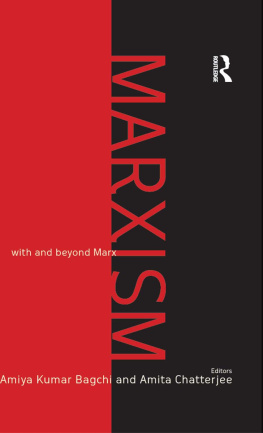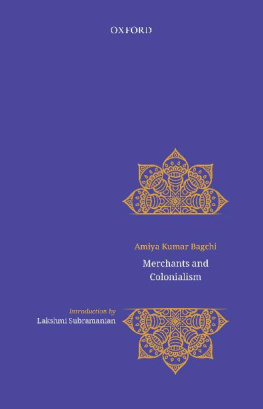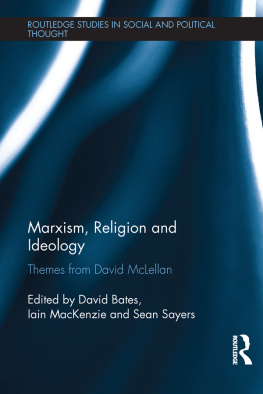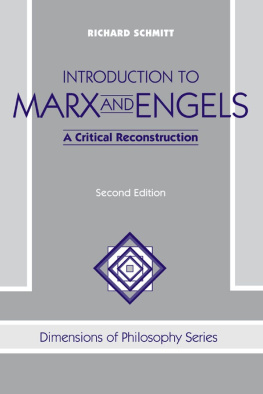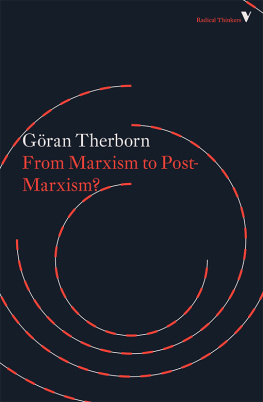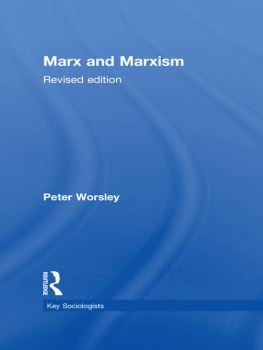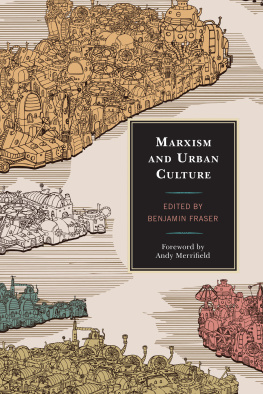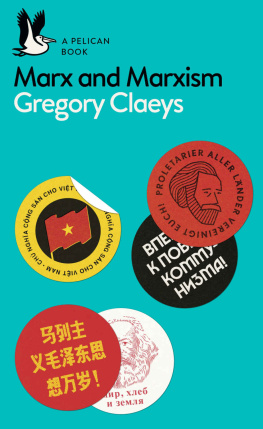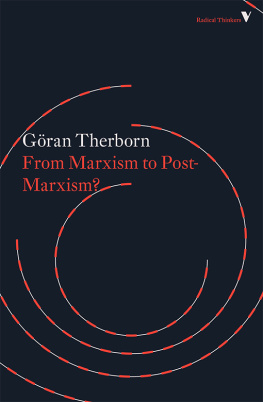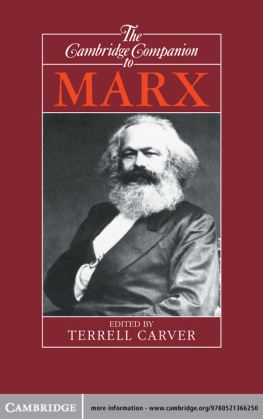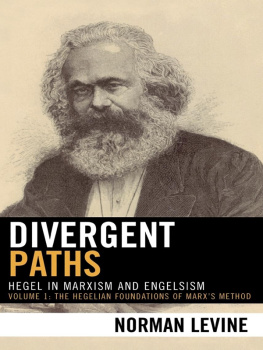
Marxism
The editors deliver what they promise: a book on Marxism that is both beyond and with Marx It is particularly valuable for readers in the pan-European world because almost all the authors are from South Asia and see the world with different glasses. The book is both refreshing and illuminating. Immanuel Wallerstein, Yale University
A superb presentation of the thinking of the radical Indian left. It rigorously analyzes the social reality of India today, with and beyond Marx, and describes the reactions, when faced by this challenge, of the Indian communist left, both within the Communist Party of India (CPI-M) and in the Maoist organizations. Samir Amin, Third World Forum
Marx once declared his favourite saying to be: Nothing human is alien to me. It is in this spirit that the exceptional scholars gathered here, most of them from South Asia, demonstrate the continuing vitality of critical Marxist scholarship. Tackling a stunning range of questions from aesthetics to the theory of imperialism, these essays offer powerful new insights into issues of politics, history, economics, culture and ideology. It is difficult to imagine any reader who will not be stimulated, provoked and even inspired by what awaits them in Marxism: With and Beyond Marx. David McNally, York University
Marxism
With and Beyond Marx

EDITORS
Amiya Kumar Bagchi
Amita Chatterjee

First published 2014
by Routledge
Published 2015 by Routledge
2 Park Square, Milton Park, Abingdon, Oxon OX14 4RN
711 Third Avenue, New York, NY, 10017, USA
Routledge is an imprint of the Taylor & Francis Group, an informa business
2014 Amiya Kumar Bagchi and Amita Chatterjee
Typeset by
Glyph Graphics Private Limited
23, Khosla Complex
Vasundhara Enclave
Delhi 110 096
All rights reserved. No part of this book may be reproduced or utilized in any form or by any electronic, mechanical or other means, now known or hereafter invented, including photocopying and recording, or in any information storage and retrieval system without permission in writing from the publishers.
British Library Cataloguing-in-Publication Data
A catalogue record of this book is available from the British Library
ISBN 13: 978-1-138-79567-9 (hbk)
Contents
Amiya Kumar Bagchi and Amita Chatterjee
Aijaz Ahmad
Himani Bannerji
Sobhanlal Datta Gupta
Radhika Desai
Alan Freeman
Vamsi Vakulabharanam
Partha Chatterjee
Prabhat Patnaik
Irfan Habib
Ramkrishna Bhattacharya
Sumanta Banerjee
Archana Prasad
Nirmalangshu Mukherji
Subhoranjan Dasgupta
Malini Bhattacharya
Acknowledgements
T his collection of essays has its origin in an international conference on Marxism: Marx and Beyond in Kolkata. The conference was funded by the Indian Council of Philosophical Research (ICPR), New Delhi, and the Institute of Development Studies Kolkata (IDSK). We wish to place on record our gratitude to these two institutions, as also to the Centre for Marxian Studies, Jadavpur University, Kolkata; and researchers and staff of IDSK for providing us organizational support.
The conference generated much excitement. It was attended by 800 participants on the first day while we had arrangements for accommodating only 200. Their curiosity was spurred by the question: Is Marxism really dead or do Marxs own thoughts still have some relevance for our time? The issue was examined from different perspectives by erudite Marxist scholars, and this volume contains the fruits of those deliberations. Subsequently, there was a steady demand for a book covering the topics discussed in the conference, a demand that finally made us undertake the onerous task of bringing out this book of essays. However, though all the contributors were present in the conference, their papers were not presented in the conference in the form that they have in this book. In fact, all the papers have been revised and rewritten on the basis of the discussions that took place in the conference. We express our sincere thanks to all contributors of the volume for trusting us and extending their cooperation.
Further, we would like to extend our thanks to the anonymous reader for his/her appreciation and constructive suggestions. The editorial team of Routledge, New Delhi, smoothed our way throughout this journey and we acknowledge, with thanks, all their help. Thanks are also due to the director of IDSK for permitting the republication of the article by Subhoranjan Dasgupta, an earlier version of which was published by IDSK as an occasional paper. Last but not the least, we are indeed indebted to all who have been keeping track of the progress of the book and are eagerly waiting for its publication.
Introduction
AMIYA KUMAR BAGCHI AND
AMITA CHATTERJEE
I t is probably safe to say that along with the Bible, the Analects of Confucius, and the Quran, The Communist Manifesto of Karl Marx and Frederich Engels is one of the most widely read books in the world. Though the regimes that were founded with the slogans of effecting a socialist revolution, following the theories of Marx and Engels, foundered after the fall of the Berlin Wall in 1989, in many parts of the world, including India, Nepal, Colombia, to cite only a few regions, political activists continued to wage struggles by peaceful means or by using arms to change what they considered to be an unbearably unjust social order with the slogans of Marx, Lenin or Mao Zedong on their banners or posters. Moreover, with the onset of the global economic crisis from 2007, many readers, who were not necessarily Marxists, found Marxs theories of the inevitability of crises under capitalism highly instructive, and Marxs Capital found many new readers.
Marxs works only a few of these were published in his lifetime, and a much larger volume of unpublished works were edited and published by Engels, Karl Kautsky and the editors of the Soviet edition of Marxs works are not only voluminous but also extremely complex in content and in the method of analysis. It can be asserted with some confidence that nothing human escaped the engaged mind of Marx and his lifelong comrade, Engels. They debated and analyzed theories of human history, the political economy of the capitalist system, the place of science in human society, poetry and literature, mankinds relation to nature to the true meaning of freedom and the constraints placed on human beings by different social orders. It is these debates that have influenced practically all disciplines of human sciences. The bringing to public notice, for example, of German Ideology, the so-called Paris Manuscripts or the Grundrisse has led to enormous debates about the meaning and significance of Marxs ) included in this volume.
Marx was trained as a philosopher. However, the general perception is that he left philosophy for economics and politics in his mid-twenties (Wolff 2010) mainly because of his trenchant criticism of contemporary German philosophers. In his thesis 11 of Theses on Feuerbach, we find his now famous declaration: [T]he philosophers have only
Next page
